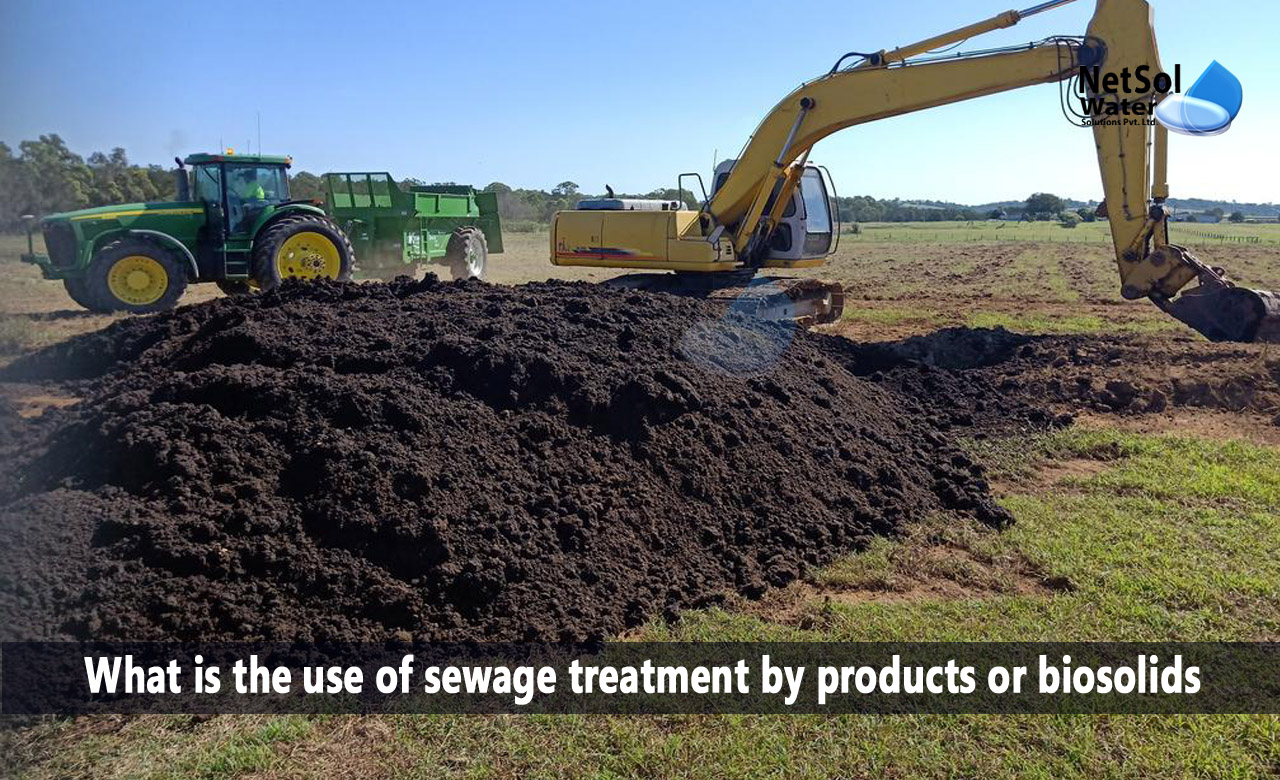What is the use of sewage treatment by products or biosolids?
Organic compounds rich in nutrients called biosolids are produced, when sewage is treated at a sewage treatment facility. Biosolids are a useful resource that is repurposed as fertilizer and soil amendments, because they contain vital plant nutrients and organic materials.
Domestic wastewater produced by sewage treatment facilities is also treated to produce biosolids. Let’s see if there are some uses of biosolids.
Treatment of Biosolids
Biosolids treatment can start even before the wastewater is sent to a sewage treatment facility. Industrial facilities are required by many wastewater treatment systems, to pre-treat their wastewater to get rid of dangerous contaminants before sending it to a wastewater treatment facility.
It is evident that there is no ideal response to the problem of handling sewage sludge. The hazards and benefits of each option must be evaluated before choosing one.
Farmers can use biosolids
Once the wastewater arrives at the treatment facility, it undergoes a biological process to clean it and remove the solids. Pathogens are then reduced or eliminated through the digestion, or stabilization of extra-biological substances. These leftovers can be recycled and used as fertilizer after treatment and processing, to enhance and sustain productive soils and promote plant development.
With the help of recycled biosolids, the need for chemical fertilizers has been depreciated!
Since forever, farmers and gardeners have recycled biosolids to cut back on the use of chemical fertilizers. Biosolids are used to rehabilitate mine sites, nourish gardens and parks, and encourage the growth of agricultural products.
Application rates for crops are constrained to meet their nutritional requirements. Throughout the growing season, the plant nutrients are gradually released, making it possible for the crop to absorb them as it grows. This effectively reduces the possibility of nitrogen and phosphorus groundwater pollution.
Crop production can be done safely using biosolids!
The use of these materials in the production of crops for human consumption, when carried out in accordance with current federal guidelines and regulations, presents a negligible risk to the consumer, to crop production, and to the environment.
Effective in reducing soil erosion
It has been discovered that biosolids possesses qualities including water retention and bulking. The ability of biosolids is to hold onto more water and soil, simultaneously. For this reason, it is chosen for preventing soil erosion, particularly in muddy locations where it may be frequent.
Used in the home for cooking and heating
Homes may benefit from using biosolids that has undergone anaerobic digestion for cooking and heating. Such biosolids is stored for between 15 and 60 days in an environment without air, and with temperatures between 20 and 55 °C.
Methane will be one of the gases produced as a result of this procedure. The hydrogen, carbon monoxide, and methane that have been gathered can be burned, or subjected to oxygen oxidation. It indicates that the biogas emitted will be utilized as a fuel for cooking, and that it can be transformed into energy and heat in a gas engine.
Conclusion
For local authorities and operators, the growing amount of biosolids generated by wastewater treatment, in tandem with population growth and urban sprawl, is a major source of concern. Biosolids treatment is now required in order to recover products and reduce volume.
For further information or to make a purchase of advanced water and wastewater treatment plants, please contact us at +91-9650608473 or enquiry@netsolwater.com



